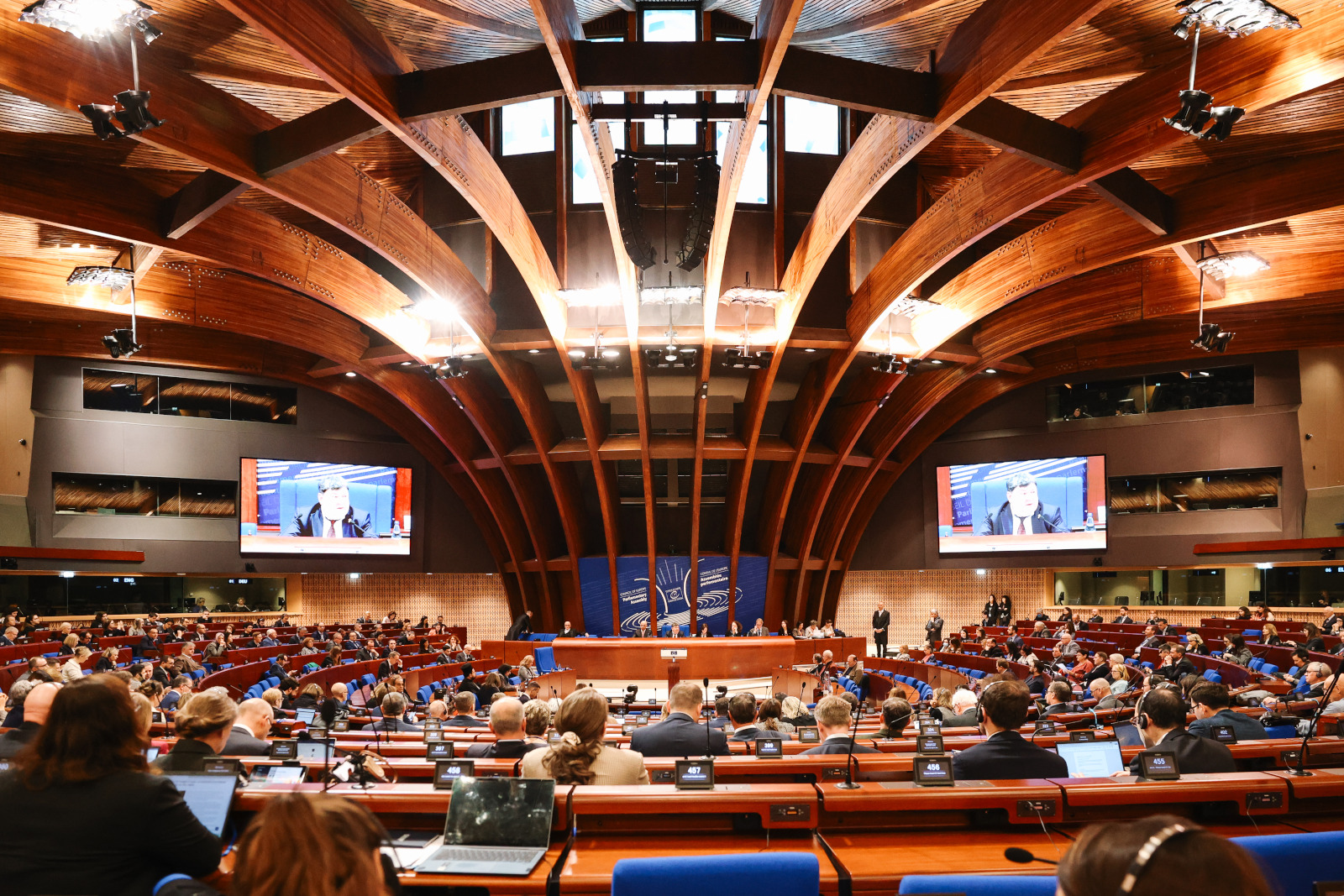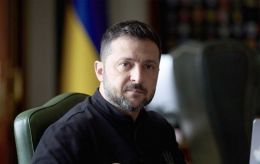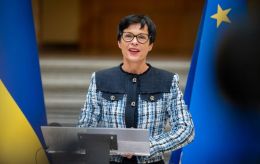Alarm in Brussels: Why Europe fears secret Trump-Putin deal on Ukraine
 Donald Trump, Emmanuel Macron and Volodymyr Zelenskyy (photo: president.gov.ua)
Donald Trump, Emmanuel Macron and Volodymyr Zelenskyy (photo: president.gov.ua)
What sentiments about Ukraine are prevalent in European political circles now, who among Europeans has a way to Trump and may become the key hope in negotiations, and who openly irritates the American president - read in the column on RBC-Ukraine.
"For Trump, we – Europe – are crap," one experienced delegate of the Parliamentary Assembly of the Council of Europe (PACE) tells RBC-Ukraine. We are discussing one of the most alarming topics in recent weeks – the possibility of Donald Trump striking that very "deal" with Putin regarding Ukraine, behind the back not only of Ukraine itself but also of Europe as a whole.
This conversation took place even before Putin revived the long-stale propaganda narrative about the "illegitimate Zelenskyy" and later gave it a powerful boost through Trump’s special envoy for Ukraine and Russia, Keith Kellogg, with his opinion about holding elections. It is obvious that the average European level of anxiety will shift from yellow to red after the upcoming phone conversation between Trump and Putin, rumored to take place in the coming days.
"Trump is focused on Russia and China. We see Zelenskyy rolling out the red carpet for him, but Trump doesn’t want to walk on it," the source says. Indeed, in recent months, the Ukrainian authorities have noticeably tried to please Trump, including through sharp jabs at the Democrats whom Republicans despise.
But the Kremlin leader has clearly joined the same game, with blunt but pressure-point messages targeting Trump: about the "stolen victory in the 2020 elections," that there "would have been no crisis in Ukraine under Trump," and so on. Who wins this behind-the-scenes competition for the American leader’s sympathies is still unknown, but the fear of a "backroom deal" is spreading across Europe.
If the first interlocutor, according to RBC-Ukraine's descriptions, displays latent anti-Americanism, the second, on the contrary, is a staunch supporter of transatlantic unity. But the messages are similar. "A deal regarding Ukraine is unlikely to be reached at any broad summit. Most likely, a few people will decide everything behind closed doors," he says. And to the proposed list – Trump, Putin, optionally Xi Jinping – he adds: Mark Rutte.
In the new political reality of the Trump era, the new NATO Secretary General is indeed one of the key ambassadors of common sense on a global level. What is important, he has an established relationship with Trump. Moreover, in European political circles a few years ago, Rutte was called the "Trump whisperer," as he, then the Prime Minister of the Netherlands, had a mysterious ability to smooth out sharp corners in relations between the American president and Europeans during Trump’s first term.
Rutte certainly does not provoke the same allergy in Trump as the collective Europe and its embodiment – the European Commission leadership. There are two reasons for this. The first is that Euro-bureaucracy, in Trump’s imagination, is the quintessence of the very "deep state," which Elon Musk is now enthusiastically dismantling in the US: a legion of nondescript figures with unclear functions, whom no one elected but who ensure the stability of the EU and institutional continuity – concepts alien and therefore hostile to Trump.
The second reason is that pan-European structures are, for him, an unnecessary layer preventing direct "deal-making" with national leaders. Trump vividly demonstrated his extremely personalist approach to matters during his more than two weeks in office: he called one capital, then another, and a third – and presto, problems were solved, trade wars won even before they began (at least in the imagination of MAGA voters).
But here, calling and "assigning tasks" to the leaders of conditional Spain, Czechia, or Finland won’t work – any serious moves must be coordinated with Brussels. This clearly frustrates Trump.
At the same time, the Ukrainian leadership has recently been actively promoting the message that Europe must be present at the table in any peace negotiations. However, they admit that this may not happen since Europe itself has lost momentum.
This primarily concerns the "two-chamber heart of Europe" – France and Germany. But in France, the government lives in daily fear of resignation, while in Germany, the coalition has died after a long agony, with elections and a challenging new coalition process ahead.
Moreover, as informed interlocutors of the RBC-Ukraine report, even European MPs who have direct access, for instance, to Emmanuel Macron or Olaf Scholz, are not particularly informed about Trump’s future plans regarding Ukraine and Europe as a whole. This, of course, only intensifies their confusion and fear of a future that already visibly hints at a trade war with the US.
In addition to confusion, European corridors are filled with pseudo-pacifism ("Why don’t you just sit down and talk?"), fear of Moscow ("What if the Russians drop a bomb on us?" and the more pragmatic "What if gas prices rise and voters reject us during the elections?"), and a very camouflaged but clear desire to return to "business as usual," hindered only by the war.

Winter session of PACE (photo: Council of Europe press service)
Fortunately, these sentiments are palpable but do not dominate in PACE. Perhaps if Ukraine and its delegation did not constantly remind everyone of themselves, the situation would be different. But as it stands, supporting Ukraine is considered a matter of good form in the Assembly, with even the Hungarian delegation behaving decently.
However, beyond expressing support for Ukraine and condemning Russia, it is still unclear where Europe sees its role at the current stage of preparing for "big negotiations." In the PACE resolution under the loud title "European commitment to just and lasting peace in Ukraine," there are few details about Europe’s role. Its main idea – "peace through strength" – is unclear to many, even among Ukraine’s sympathizers.
The main European friends of Ukraine remain the Baltic states, as well as the European North and the United Kingdom. But even together, they cannot dictate the global agenda on Ukraine, especially considering the serious domestic problems of the British government. "Europe may start doing something in the defense sector, but it will do it as Europe always does – very slowly, for ten years. Neither you nor we have that much time," one European diplomat tells RBC-Ukraine.
At the moment, the agenda is dictated by the US and personally by Trump, with others forced to simply react. And so far, no one in the West has emerged who can firmly say "no" to the American President.

